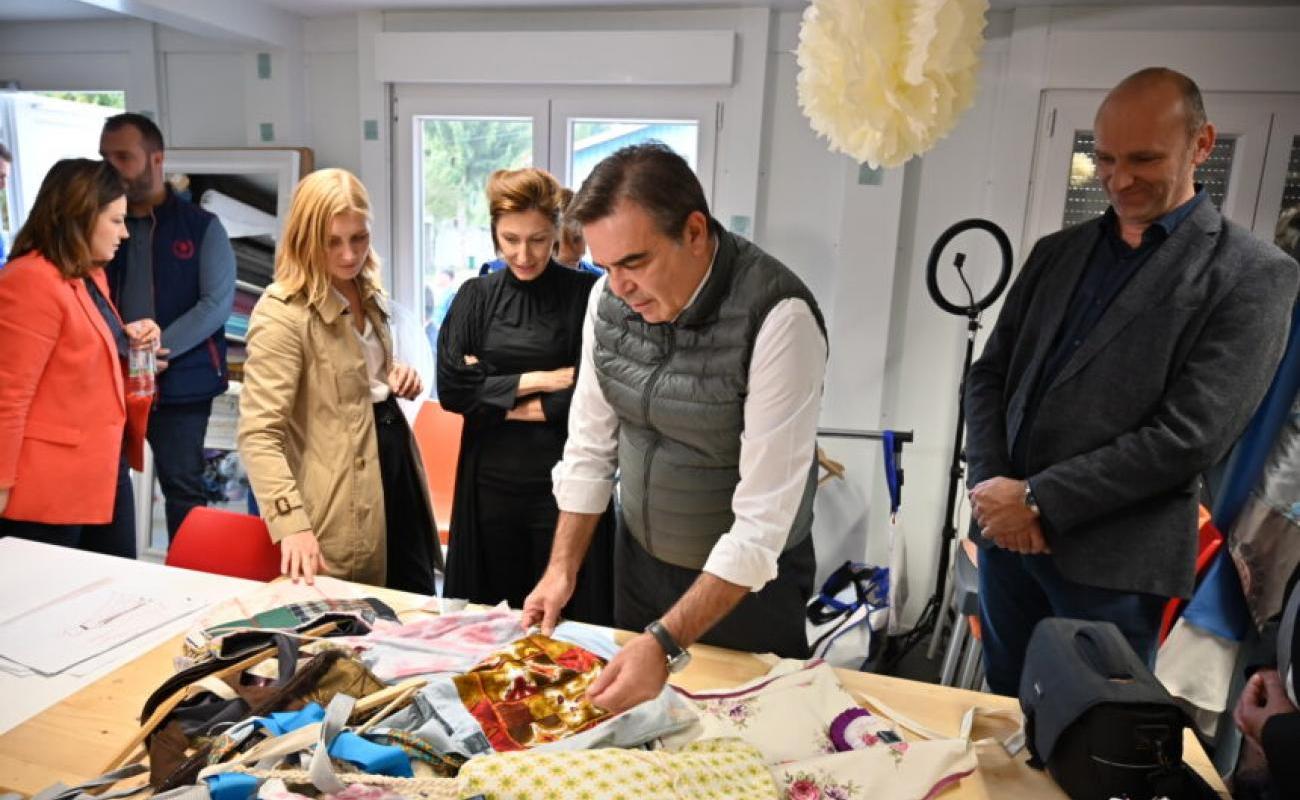European Commission Vice President announced a new Project worth EUR 39.5 Million

During a visit to Bosnia and Herzegovina (BiH) on 9 October 2022, European Commission Vice President for Promoting our European Way of Life, Margaritis Schinas, announced a new project, worth EUR 39.5 million, focused on supporting Bosnia and Herzegovina in managing mixed migration flows and border management. This is part of the EU‘s continuous support to Bosnia and Herzegovina and the Western Balkans in addressing irregular migration, border security, asylum, returns, fighting the smuggling of migrants and combatting trafficking in human beings.
Vice-President Schinas is in BiH as part of a visit to four Western Balkans countries to engage with partners in the region, better understand the situation on the ground and explore how to address the rising number of irregular border crossings along the Western Balkans route in a spirit of partnership and cooperation.
Vice-President Schinas met with BiH Minister of Security Selmo Cikotić and thanked him for the Ministry’s leadership in improving the migration situation, coordinating services, and boosting international cooperation. He called for enhanced cooperation and coordination with the European Border and Coast Guard Agency, Frontex, and for BiH to finalise the establishment of the Joint Contact Point for Europol. He underlined the need to step up returns of those not in need of protection – as an essential component of any credible migration policy.
Since the start of the arrival of a larger number of people on the move to Bosnia and Herzegovina in early 2018, the European Union has provided more than EUR 100 million to address the immediate needs of refugees, asylum-seekers and migrants and to help BiH strengthen its migration management capacities. The new project worth EUR 39.5 million aims to improve border management and will also provide a framework for the transition of the coordination and management of the migration response in BiH from UN agencies and humanitarian actors to the BiH authorities. It comes from an EU allocation of EUR 101 million for three Western Balkans partners, BiH, North Macedonia and Serbia, to strengthen the response capacity to manage migration flows.
During his visit to BiH Vice-President Schinas visited a reception centre hosting irregular migrants in the vicinity of Sarajevo, in Ušivak. In Ušivak, Vice-President Schinas met with migrants and was able to observe the improved conditions in the centre as a result of EU support. He also visited a sewing room in the centre, which thanks to EU funding was the starting point for a new migrant-led successful fashion label, ‘No Nation Fashion’.
“We all remember the events of 2015 and 2016 which generated dramatic scenes we never wish to see again on our continent. Thanks to the efforts of Bosnia and Herzegovina, and the support of the neighbouring countries and Frontex, the EU’s border agency, together we managed to get the situation back under control and ever since there has been a substantial decrease of arrivals along the route. In recent months, however, these numbers are picking up again – meaning we all need to address the situation with increased vigilance. This is why I am undertaking a series of visits that in addition to Sarajevo, are taking me to Belgrade, Skopje and Tirana, to see how we can best address the situation together, in a spirit of cooperation. The European Union supports and will continue to support Bosnia and Herzegovina in managing migration: and alone my presence here is testament to that fact,” said Vice-President Schinas.
“Since the beginning of the migrant crisis, the European Union has been the main partner and provided the greatest financial support to the authorities in BiH in the field of migration and border management. The result of our joint work is a stable and sustainable migration situation. Through more efficient management of migrant flows, strengthening the coordination of institutions at all levels of government, increased surveillance of the state border and improved cooperation with international partners and civil society, today we are in a much more favorable situation and we are more ready to deal with these challenges. We are glad that our efforts have been recognised and positively evaluated by our EU partners,” said Minister of Security Cikotić.
